Who Needs a Federal Government?
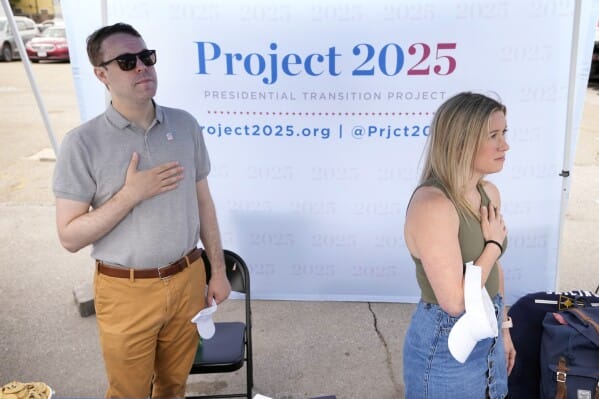
Throughout my lifetime prominent elected officials have called government “too big, bloated, inefficient, overreaching, a big nanny state”, and more. So why have a Federal government at all? Some, like Reagan, have joked about government. Some, like Grover Norquist, sought to weaken it. And others, like the Heritage Foundation and their wealthy donors seek to destroy it completely, publishing detailed plans such as Project 2025, their objective —replacing all those committed to democracy, equality, and justice with a group of highly partisan Christian nationalists and extremists.
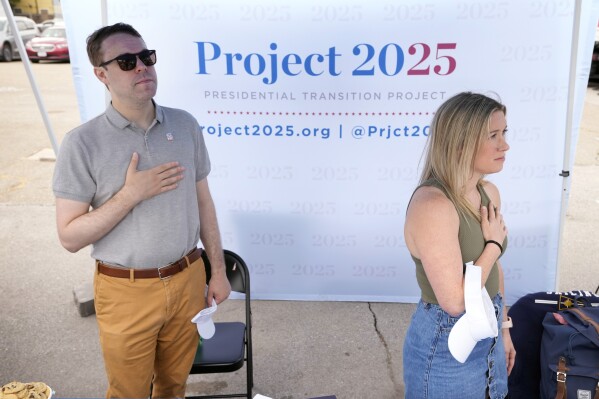
“I’m with the Government and I’m here to help.” —Ronald Reagan
“The problem with socialism is that you eventually run out of other people's money.”
—Margaret Thatcher
“I don't want to abolish government. I simply want to reduce it to the size where I can drag it into the bathroom and drown it in the bathtub.” —Grover Norquist
One might think the role of a Federal government is to collect taxes, pay itself, and then destroy itself (collecting a lifetime of pension and healthcare benefits -while working feverishly to eviscerate everyone else’s).
I thought it might be of interest to take a step back, briefly touch upon our nation’s history, discuss why government exists, and describe its theoretical role in the so-called United States.
A brief walk through history two and a half centuries ago:
- The British King imposed a tax on the new colonies.
- Marines and National Guard were deployed to Los Angeles. Oops. I mean British Soldiers were deployed to Boston and killed five colonists.
- The colonists torched some Teslas. I mean, they dumped British tea into the Boston Harbor.
- The King revoked the local Massachusetts government.
- Armed conflicts between colonial militias and British troops broke out, largely due to the King’s “Big Beautiful Bill” -forcing the colonists to pay taxes subsequently used to enrich the King and his wealthy friends.
- A bitter and brutal war was fought between the forces of the King and colonists seeking independence.
- The thirteen colonies of the United States of America celebrated its first “No Kings Day”. I mean the Declaration of Independence.
The new nation recognized the complexity of trying to govern and defend 13 different former colonies, now called the “United States of America”. While each state formed its own state and local governing bodies, it was recognized that a federal government was necessary to provide a national defense, guarantee fundamental individual rights (mostly for wealthy white male landowners), develop and manage a common currency, provide a consistent international framework for trade, treaties, and alliances, and create a mechanism to resolve conflicts between the former colonies (even then, trying to get the New York colony to agree with the colony of South Carolina was problematic).
Having just fought against the tyranny imposed by the King, the collection of 13 former colonies were concerned about a Federal government with unchecked power, and therefore a careful balance between national unity and state autonomy was negotiated. A system of checks and balances was codified to balance the authority of the Executive, Legislative, and Judicial branches of government in the unlikely event a future President might declare himself above the law, effectively becoming a “King” and rendering the other two branches of government his loyal subjects and powerless to stop him.
The framers of our Constitution recognized that there were necessary compromises made to appease certain colonies to ratify the founding documents and achieve, at a minimum, a tenuous unity.
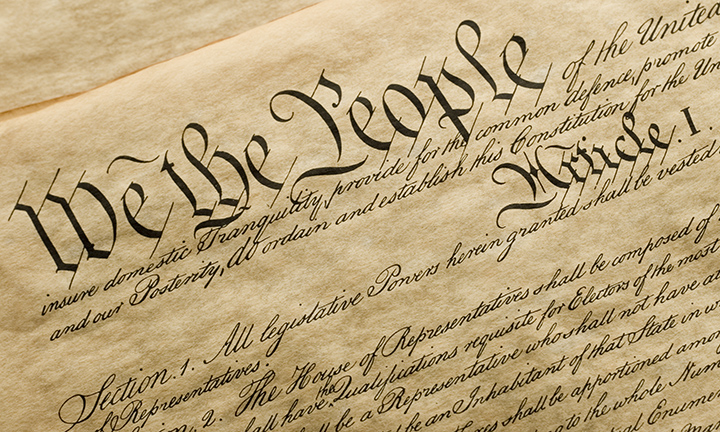
Aside from providing a consistent “lowest common denominator” framework, the role of Federal government should be to understand our short, intermediate, and long-term objectives as a nation, collect the taxes necessary to achieve those objectives, and to align and appropriate funds to achieve those objectives.
A lifetime of observation has distilled, for me, these core tenets—indispensable to any genuine effort to achieve democracy:
- A well-educated society. People must be able to understand and think critically about history, determine the nature of society at present, and decide future objectives and priorities.
- A well-informed society. Factual and evidence-based news, analysis, and perspectives must be readily available to evaluate, determine new societal objectives, and refine existing objectives based upon new trusted information.
- Society must be engaged. Being educated and informed provides a foundation for intelligent engagement, however, such a foundation must be converted to civic and political participation in democracy.
- Insatiable greed is democracy cancer. The extreme accumulation and concentration of wealth into the hands of a few is antithetical to democracy and eventually leads to the death of democracy and the rise of authoritarianism and tyranny. (I am not anti-wealth. I have written previously about earned wealth versus wealth transfers and there is a vast difference. Article: The Idiot Kings of Late-Stage Capitalism)
If you find yourself agreeing with the above, while a budget to achieve all of our societal objectives is vast and complex, education, independent, trusted, and unbiased news, and civic participation should be treated as absolutes, a national priority that is necessary to defend democracy, justice, and equality. And below, George Washington and Franklin D. Roosevelt are nodding in agreement.
“A primary object should be the education of our youth in the science of government. In a republic, what species of knowledge can be equally important? And what duty more pressing than communicating it to those who are to be the future guardians of the liberties of the country?” —George Washington
“Democracy cannot succeed unless those who express their choice are prepared to choose wisely. The real safeguard of democracy, therefore, is education.” —Franklin D. Roosevelt
Education
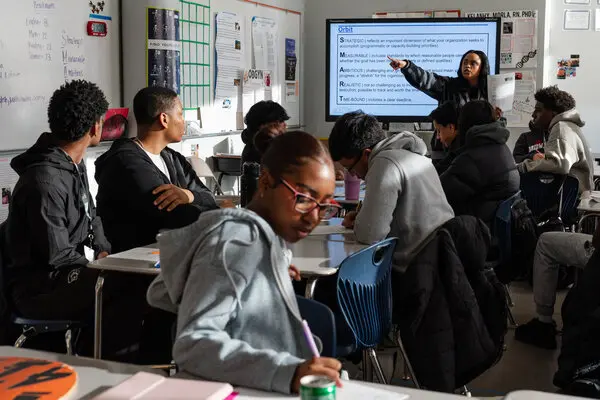
There are constants in education. The laws of physics are the same in Alabama and in Oregon. Newton’s Laws of Motion are the same in South Dakota and Florida. The Pythagorean theorem is the same in Minnesota and Texas. Grammatical structure is the same whether you are in Vermont or Illinois (words may be pronounced differently in Bensonhurst). Every child should have access to a foundation of facts and evidence-based learning.
Civic engagement is just as important in Arizona as it is in Georgia. State-specific education should be additive to a common foundation of learning, not as a replacement.
A consistent, high-quality public education is a perpetual defense of democracy and our ability to evolve toward “a more perfect Union”. Public education should provide the mechanisms for critical thinking, research, reading, writing, mathematics, science, history (real history not a politicized white-washed “patriotic” masking of truth), political science, economics, climate and environmental sciences, humanities, and equip all students with the necessary skills to lead productive lives as active citizens, not as indoctrinated obedient hyper-consumers wrapped in flags and religion.
A world-class public education should inspire each student to continue a lifetime of learning and a great appreciation for the principles of democracy, equality, justice, and ethics (sorry Clarence). Teachers and professors should be well-compensated and valued for their role in shaping the next generation. This is because the next generation will be the future guardians of democracy and our system.
Public education has been attacked and eroded for multiple generations. The battles over “Critical Race Theory” and “Diversity, Equity, and Inclusion (DEI)” are just two recent examples that date back to the Lewis Powell Memorandum of August 23, 1971, and the Reagan Administration beginning a shift of the massive economic burden of higher education to students and families. Private school vouchers, politicization of education, and other mechanisms are being used to weaken, undermine, and destroy public education under the blatant lies of “parent choice” or indoctrination. The forces of tyranny and authoritarianism do not want a well-educated public. They view the education system as a factory producing a steady stream of obedient consumers and/or birth vessels who will not ask challenging questions about climate, justice, equality, and policies leading to the extreme concentration of wealth.
Information, News, and Media
Generations ago people gathered around the radio to learn about critical national and global events. President Franklin D. Roosevelt provided two to three “Fireside Chats” updates to listeners on banking and economic crises and recovery, New Deal policies, and World War II. Renown journalists such as Edward R. Murrow provided fact and evidence-based reporting on critical global events.
“We must not confuse dissent with disloyalty. When the loyal opposition dies, I think the soul of America dies with it.” —Edward R. Murrow
Today, while there are investigative journalists breaking stories such as the Panama Papers, the distribution of news and information, once provided through a substantial array of outlets is now consolidated and owned by billionaires such as Elon Musk, Mark Zuckerberg, Jeff Bezos, Rupert Murdoch, and a handful of others. This means that even if there is a remarkable story about a politician or an elected official participating in Medicare fraud, tax evasion, corruption, bribery, or other important event, the story might not ever see the light of day. While it’s been said that “Democracy Dies in Darkness” -let’s be clear. The darkness is the shadow cast by a vast pile of accumulated wealth by a person or persons who harbor insatiable greed, do not care about democracy, and believe the law is fine provided they are above it or can subvert the law to enrich themselves.
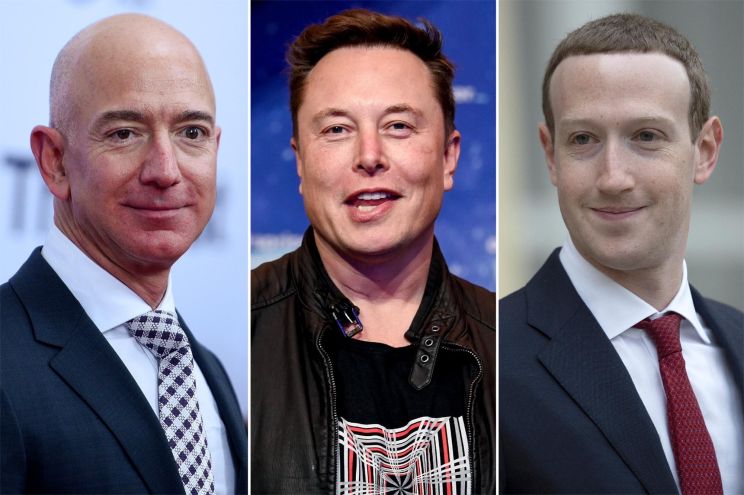
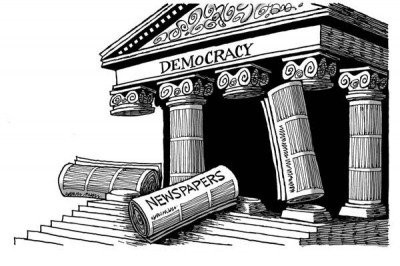

Broadcast, print, digital, and social distribution mechanisms must allow the free flow of important news and information. In today’s world critical news is often lost in a sea of bright shiny entertaining objects intended to distract us. Broadcast news caters to their audience which has a polarizing impact upon society. Digital information is filtered through shadowy private algorithms which can alter headlines and stories or keep them hidden from consumers to intentionally shape false perspectives.
Read more about the broken media pipeline fostering hate and societal divide is here: The Media Pipeline.
This is why the GOP is doing all it can to eliminate funding for PBS and NPR. Publicly funded news and information are antithetical to dividing and controlling society through propaganda, disinformation, and lies.
Civic Engagement
Assuming a society has a foundation of a world-class education, is equipped for critical thinking, and has access to an array of fact and evidence-based news and analysis, a society must also be engaged. It has been said that democracy is not a spectator sport. Electing representatives and then hoping they govern and legislate in alignment with your values is magical thinking. Through Nixon, Reagan, Clinton, “Dubya”, and Trump, “governance” has meant Watergate, Iran-Contra and exploding costs of higher education (which created the student debt industry), weakened unions, NAFTA, illegal wars creating perpetual Middle East chaos, an economy on the precipice of collapse, attempted extortion of U.S. allies, and the loss of U.S. leadership as a stable defense, trade, and climate partner globally.
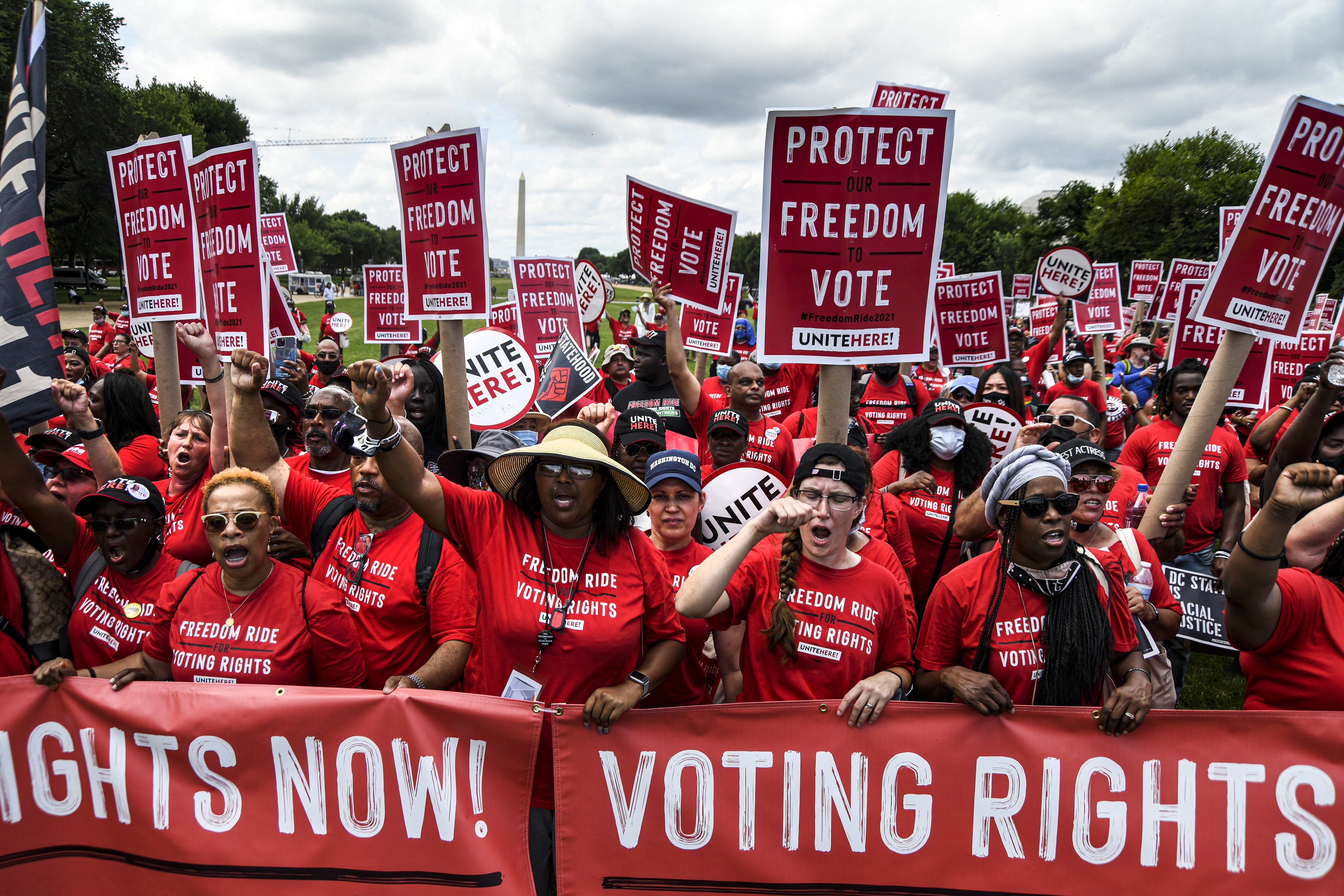
While I don’t suggest we all quit our jobs and shift to 24x7 self-governance by 330 million people, we must reimagine engagement for democracy. We all need to dedicate “democracy time” to evaluate our societal priorities, understand how our budget aligns with priorities, and ensure each set of priorities is on an optimal path for efficiency and success. And by efficiency, I don’t mean unleashing a group of teenagers with passwords and laptops, who hilariously believe that Elon Musk is a genius, to wreak havoc on critical secure government systems to send private and personal data to Peter Thiel. I mean an optimal allocation of time, money, and subject matter experts to transparently achieve vast improvements in areas such as high-quality affordable healthcare systems, economic growth, mobility, and opportunity for all, and research intended to improve the security, safety, and quality of life in the United States and globally.
“That was when they suspended the Constitution. They said it would be temporary. There wasn't even any rioting in the streets. People stayed home at night, watching television, looking for some direction. There wasn't even an enemy you could put your finger on.” -Margaret Atwood, “The Handmaid’s Tale
Our National Lowpoint
If we emerge from this dystopian nightmare in which a criminal is in the White House with a cabal of his incompetents and lowlifes, a House controlled by a little worm called “Johnson” and a Senate with absolute fealty to the criminal-elect (even while one of their own is arrested and handcuffed for daring to ask a question), we simply cannot bury our collective heads in the sand and continue on the same path that has led to this fascist billionaire takeover of U.S. government. Driving change will take dedicated focus, patience, and political will.


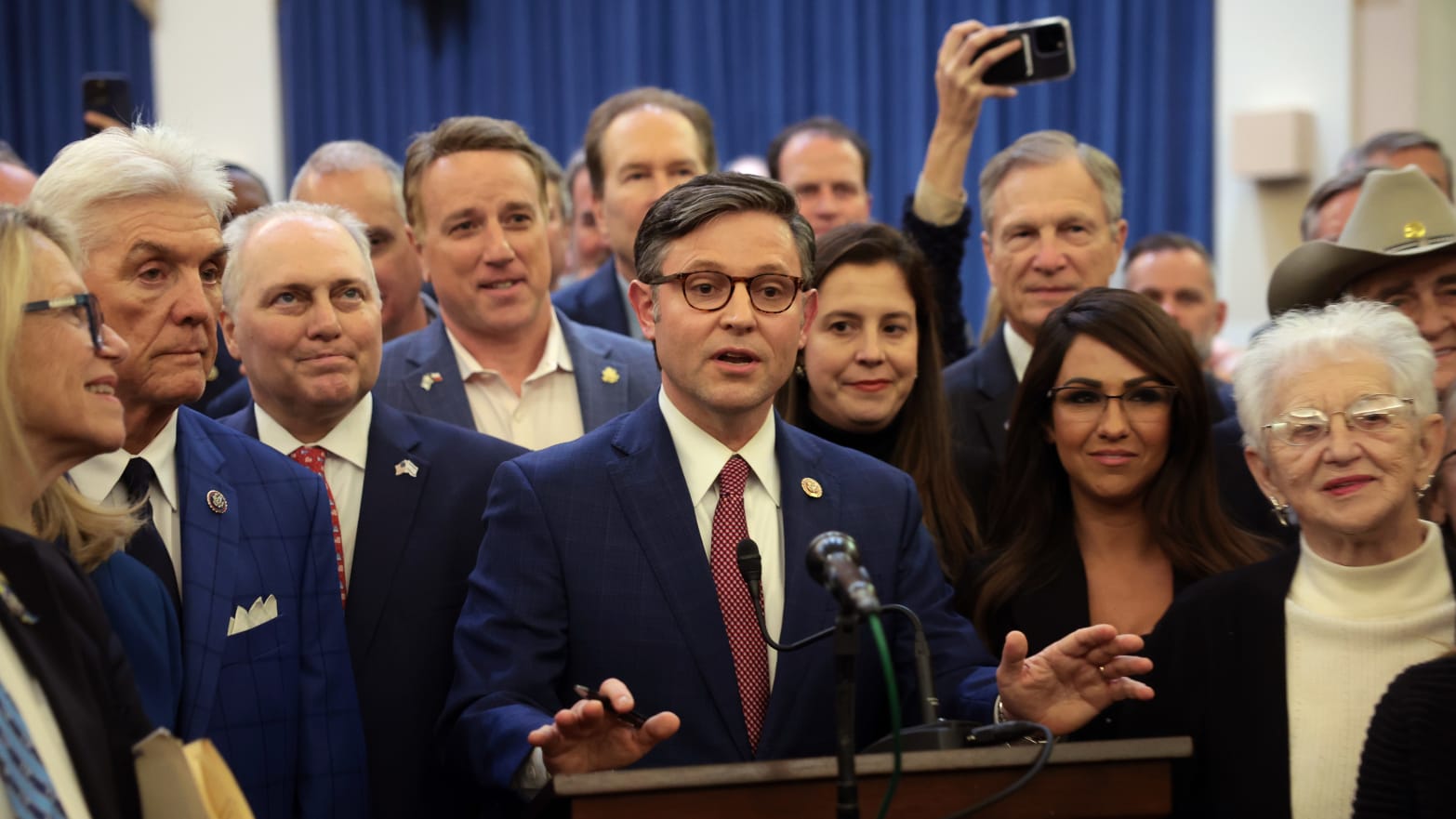
A Generation of Political Commitment
Beyond a two to four-year cycle -we need the political will to invest and change our course and the patience for a generation to transition to a true participatory system of democracy and budgeting. The 2024 election cycle in which one-third of the voting population self-disenfranchised and one-third voted for a corrupt criminal is evidence we are not yet ready for a shift toward pure direct democracy. We are ready for a generational plan to implement such a system.
It will require a massive shift in the 2026 and 2028 election cycles (if there are future election cycles). We will need a massive majority of voters to support candidates who commit to the principles of democracy, justice, equality, and a transformation of our system to a true participatory democracy. It will also require the removal of every elected or appointed official who has continued to participate in election denial, obstruction of justice, and aiding/abetting the current criminal administration under Section 3 of the 14th Amendment.
The shift will require a “Mission to Mars” dedicated focus on holding the newly elected Members to faithfully defend and implement the transformation. Like the National Popular Vote Compact, the transformation and the eventual result would not require Constitutional amendments. It would merely prioritize the education, public media, civic education, and systems necessary to support participatory democracy and budgeting. It will be much more difficult for Big Oil, Big Pharma, or the NRA to bribe 330 million people than it is to corrupt 55 U.S. Senators and 220 Representatives. Taxpayers can then directly determine if we should use our funds to provide weapons used in offensive military operations for genocide and ethnic cleansing. Taxpayers can decide whether Exxon Mobil and Chevron should receive subsidies. And where the will of the people has been stymied with regard to reasonable gun violence prevention, healthcare reform, climate action, and immigration reform, we the people can make the decisions that are subsequently codified into law and policy.
Technology Obsoletes Representative Democracy
The long-established model of electing or re-electing leadership with the hope that they will represent your interests, your family’s interests, and your neighborhood, city, state, and nation has been corrupted by the extreme concentration of wealth in the United States. Civic engagement is not just making sure you are still active in the voter rolls and voting every two or four years (if you have time).
It is why we cannot pass laws and implement policies around gun violence prevention. Codifying the reproductive rights of women, strengthen voting rights, affordable healthcare, immigration reform, climate action and environmental protections, and other societal imperatives.
In the United States, with computers and mobile devices now almost as readily available as guns and assault rifles, we could have the ability to transform the government from a representative form of democracy to a near-direct democracy. For example, if you were to take the Trump titled “Big Beautiful Bill” and break it down into citizen voting it might look something like this:
Vote Yes, No, or Abstain:
- Should we extend the tax cuts for the 1% Permanently? (Yes/No/Abstain)
- Should we remove access to healthcare for families and children who cannot afford it?
- Should we allow the President to impeach and remove judges who are mean to him?
- Should we defund Public Media?
If society were adequately educated and informed on critical issues, instead of matters being decided by a criminally corrupt President, 100 Senators, and 435 Representatives, the people would directly determine the outcomes aligned with societal priorities, legislation, and policy language would be drafted, and specific agencies responsible for the outcome would be resourced with well-paid subject matter experts who would implement the policy or legislation, and, in an accountable and transparent manner, report on the status and results.
A system, such as the above, would provide greater alignment between our tax dollars and societal priorities. And there would be long-term objectives, intermediate, and short-term objectives, and emergencies requiring voting, appropriation, and reporting.
Define our National Priorities
When we elect a candidate to represent our interests, whose interests will they represent? When an elected official’s primary objective is to be re-elected, and elections require massive campaign “donations” does a lobbyist with a large donation outweigh a few votes from citizens?
An excellent organization providing United States budget analysis is the National Priorities Project: https://www.nationalpriorities.org/
Participatory democracy will require us to prioritize our objectives for society. Do we want a well-educated public with readily available trusted news and information? Do we want to spend a trillion on “defense” and remove healthcare access for families who cannot afford care? Do we want to drill for oil in nature preserves, national parks, and our oceans? We need to be able to largely agree on what the concept of the United States of America should be. What is the concept represented by the flag? How do we want future generations to live? Terrorized by the Marines in a dystopian hellhole where we attach ankle bracelets to women to make sure they remain barefoot, pregnant, and in the kitchen? Where you are either healthy and “productive” or you are cast aside? Where you are on your knees in service to the King and his corrupt alcoholic, puppy-shooting, brain-worm ravaged lunacy?
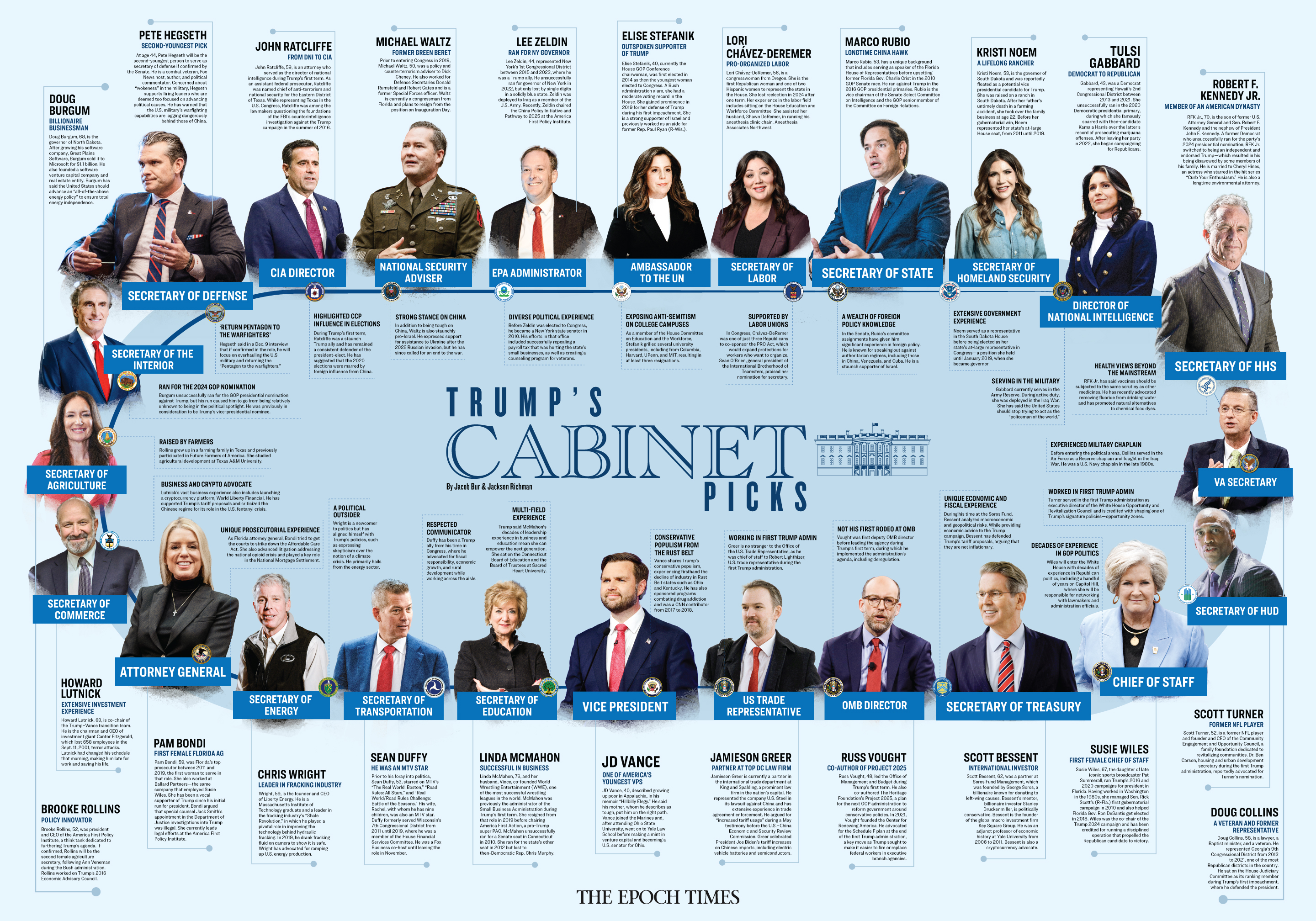
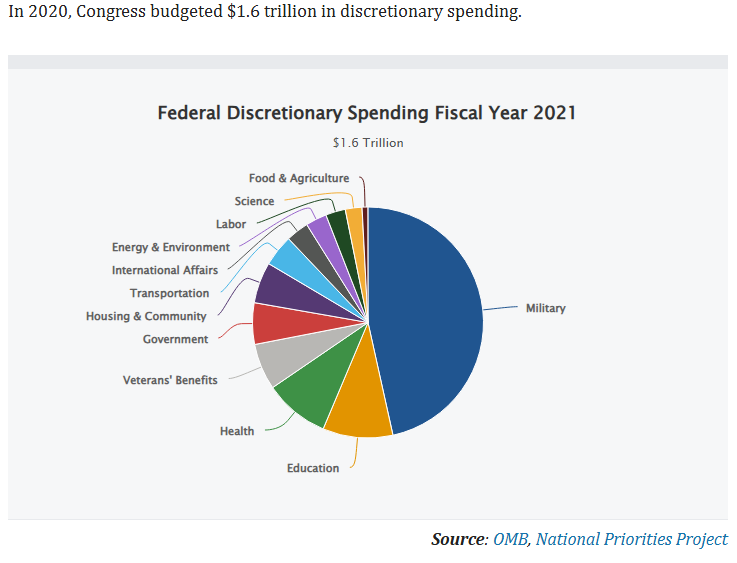
We must establish what the future should look like, where we are at today, and the difference between the future and now is “the work”. We then prioritize “the work” and that becomes our roadmap. The roadmap informs what is short-term, intermediate-term, and long-range plans. As a nation we then review, perhaps on a semi-annual basis -the status of our societal imperatives, we make course adjustments, and we address any unforeseen risks that are causing delays or constraints in implementation. We gather together at times of emergencies and disasters to make decisions for communities impacted by such circumstances.
We have the technology to make this operational and feasible, and we can transition to such a system. Think of it as secure, virtualized “Kitchen Table Democracy” on a societal scale.
If we do not, even if we manage to overcome our present flirtation with billionaire-imposed authoritarianism, we are simply kicking the can down the road toward a far more dangerous future.
“If ever a time should come, when vain and aspiring men shall possess the highest seats in Government, our country will stand in need of its experienced patriots to prevent its ruin.” — Samuel Adams
PS -My Articles and Subscriptions are always free. If you find this article of value please do share with friends, associates, & others who have an interest in the content.
Please note that my articles and subscriptions are not paywalled. This stems from a guiding principle -that any meaningful democracy requires an informed, educated, and engaged society. It is also to honor the life of Aaron Swartz who held firmly to the belief that research and knowledge intended for the betterment of humanity should be freely shared. Also, when you subscribe -it is good for my fragile ego.
Aside from writing, mentoring others and projects related to democracy, economics, and social innovation, I’m dedicated to Civic Works, a 501c3 non-profit organization building and managing technology that blends social networking and civic engagement. Our core effort is around civ.works: https://civ.works. It is intended as a subscriber-supported, ad-free social network that does not betray subscriber trust by selling or sharing data with marketers or sinister political operatives.
I’m incredibly grateful for all who contribute to the civ.works effort through our secure payment processor, Stripe -and all who help us gain visibility by sharing the project with journalists and others to move the effort forward.
Special appreciation for all who continue to recommend my rants and musings, restack articles that are found to be worthy, and share with friends and family:


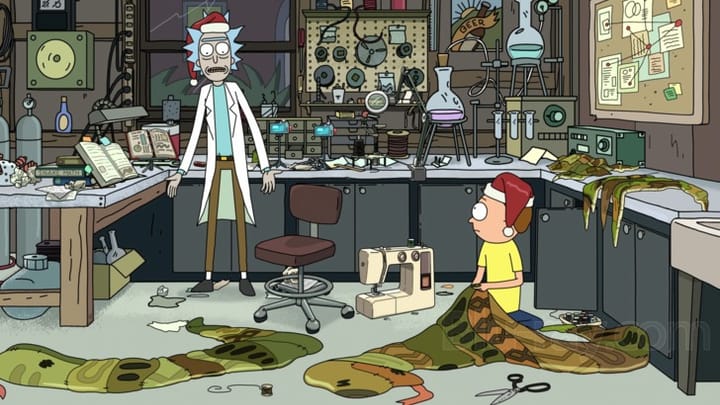

Comments ()